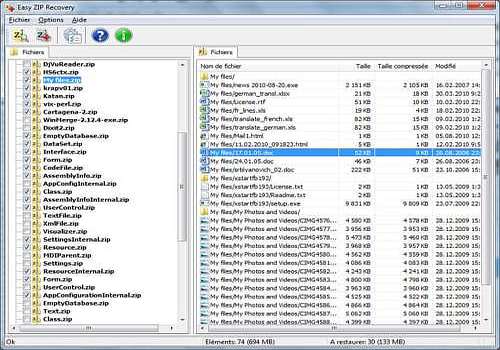

PKWARE SFX FOR WINDOWS SOFTWARE
However, the software has jumped a few versions since then, so it would be interesting to see how it compares to PKware's solution these days.

A more widespread deployment was just too complex. In the end, we scaled-back and just used it for sensitive formulation information and for board-level documents. Lower-level staff were as confused by it as the users. Secondly, the complexity of setting up rules around encryption users and groups meant we basically had a dedicated (and reasonably skilled) support resource just managing that. Users understand "permission denied", but when the application complains the file is broken, they just immediately log a call and ask for it to be fixed. The files appeared "broken" to those users who couldn't access them, which led to a large rise in support calls. It worked really well in theory, and definitely helped with security, but the additional layer of security on top of the folder-level security caused constant support headaches.įirstly, for reasons relating to licensing costs, we only used the system on a subset of files, and only a subset of users had it installed.

It started out as a tool for USB device control and encryption, but grew to have many of the same features as this does (at a file level), in terms of file and folder encryption on network drives. We used a similar solution (called DriveLock) several years ago at a pharmaceutical company I worked for. If its transparent to the user, I could see this being very appealing to companies. Interesting idea where the company docs could be automatically encrypted and only those with the appropriate group permissions can view them (much like server access currently occurs). "Smartcrypt consists of a cloud backend for key management ( or a private server for corporate customers that require it) and clients for "any enterprise OS you do processing on," said Little."

I also have a copy of each private key in 1Password, whose data is synced to the cloud, but that is protected by yet another ultra strong passphrase whose failure would cost me dearly (so hopefully not). They are naturally included in local and remote drive backups, each protected by a distinct strong passphrase. My GPG and SSH private keys, for instance, never ever leave ~/.gnupg and ~/.ssh, except when locally copying to the respective directories of my other machines.Įdit: Saying my keys never leave ~/.gnupg and ~/.ssh is inaccurate. Unless this service uses keys without passphrases.Īnyway, I still find it unthinkable to store private keys in the cloud. Your keys should be protected by your passphrases, though. My point is that bad encryption is useless for all users. This does not help users on mobile devices I admit, but that is the problem worth solving and one that that should be solved, a middleware for Smart Cards on mobile devices. Outlook already has the capability to send encrypted data with a Smart Card out of the box. What makes you think, the corporate data is safe, from those same police users? If personal users key is shared, and police can access personal user's data, because they also have a key. I'm guessing the public, cloud-hosted version is just there to try and drum up interest in the private one. PKWare's business seems to be primarily with enterprise customers, so this isn't really an issue. They can claim they won't but they will, when the big bad wolf comes (Government), they will roll over to avoid being eaten (fined). This means the Pkware view and share with anyone they want, any and all content, that is encrypted by your keys. This basically means it is dead in the water. "If you're just an individual user of Smartcrypt, the service connects to Pkware's cloud service to store all the keys generated for encryption."


 0 kommentar(er)
0 kommentar(er)
